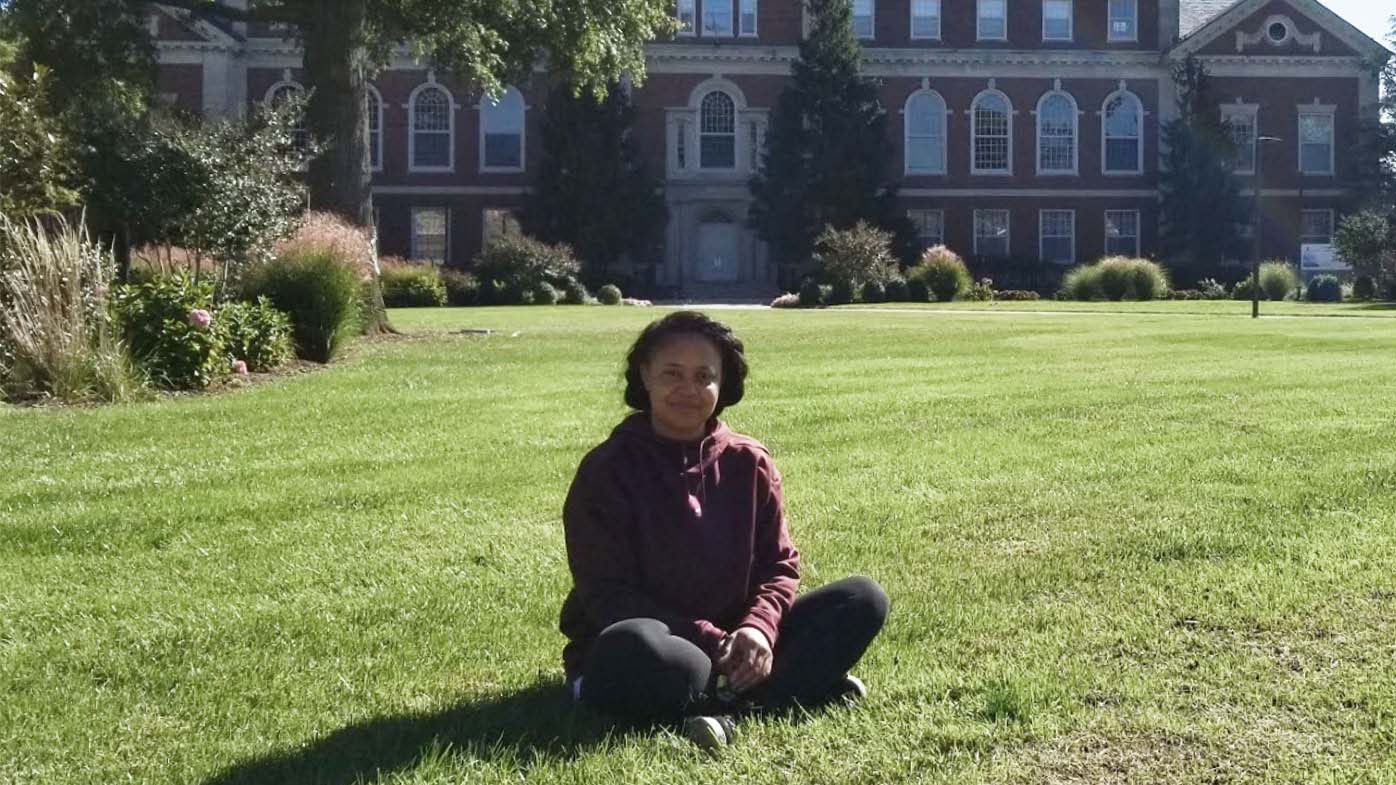Q. How did your experience in attending a HBCU impact your career path?
A. I wanted to go to an HBCU since I was young—since I was five. I grew up in a Black town, so that was my point of reference. At the time I just knew I wanted to be with people like myself.
As I got older and began to understand what HBCUs are and the history of HBCUs, I understood that I wanted to go to be with people like myself but from all over the world—to interact with people who were similar to me but from a different country or part of the United States, who may have all grown up differently but could connect and get to understand each other while learning Black history.
On top of that, I knew I wanted to get into science, and Howard University has a strong science program with leading doctors, biologists and chemists. I wanted to continue down that path.
Q. How did you become aware of the biopharma industry and what led to your interest in pursuing a career in biopharma?
A. My father used to drive a lot for his job repairing washing machines. In the summer when I was in middle school he would take me with him, and would pass by Bristol Myers Squibb. When we passed, I would point and say “that’s where I want to work!”
But once I was in college, I really became aware of where I wanted to go. I considered medical school but didn’t want to remain in school that long, so I had to change paths and started looking more into micro laboratories. Through school, I realized the best way into those laboratories was through the pharma industry.
Q. Were there specific conversations with faculty or advisors at Howard University that helped you shape your career path?
A. One person who was critical was my biology professor. I chose this industry because I love science and I love microbiology. I asked him "what are some of the avenues I can pursue if not medical school?” He told me the biopharma industry might be best suited to me because I could use my microbiology background not just in the lab but for helping to make products.
Howard University also provided me with a book of all the pharmaceutical industries in the U.S. I was able go through the book to find where they were located and started sending my resume to all of them.
If you let Howard University faculty know where your head is—they’ll help you with your career process. My son attends Howard University, and it’s even better now. My daughter will be enrolling in August.
Q. What advice would you give to someone considering or just beginning a role in biopharma?
A. Jump in where you can. Because from there you move to different areas as you gain experience. One thing about BMS is you’re able to move to parts of the business based on your experience and what you want to do. They’re very focused on development planning for their employees.
There was a recent college grad in microbiology who asked my advice. I told her to get into biopharma, because you’ll get to see how things like manufacturing or quality assurance work. If you like those experiences, you can move into those areas while still using your microbiology background. Where you begin your career is not where you’ll end it.
To this day I still use my microbiology background—but you progress to understand different processes that move your career along.
Q. What did Howard University teach you or prepare you for that you’re particularly thankful for?
A. They taught me to be aware of myself, aware of others and their motivations, and what to look for in the workplace.
They taught me to be sure I treat everyone with respect, but that I also demand respect.
They prepared me for my job, but they prepared me psychologically as well. I grew up in a Black town and I went to a Black college. My first experiences working with other people was at my first job, and Howard University prepared me to be my own advocate.
They also taught me to listen and listen well—take in what you’re hearing to make sure your output is correct so that leaders will believe in you.
Q. What excites you most about BMS?
A. I love getting to work and strategize with people. I also love that I can play the role of mentor. I recently was able to onboard two interns this summer—one from Howard University and one from Rutgers—both who are minorities. I get to discuss their career goals and how we can help. Mentoring and seeing the development of my team and their careers is something I love.
In the past year and a half, I’ve also seen BMS really push on diversity, equity & inclusion. They’ve put words to action and are involving the right people to ensure success. I can see the change.
Q. Anything else you’d like to share with recent college grads or prospective Black employees?
A. Networking is very important. Once you come into BMS and get settled, find a mentor who can help you navigate coming into the workforce.
BMS has been intentional in ensuring plans and systems are in place to support minorities coming in so they can develop them empower them, and help them to network.


